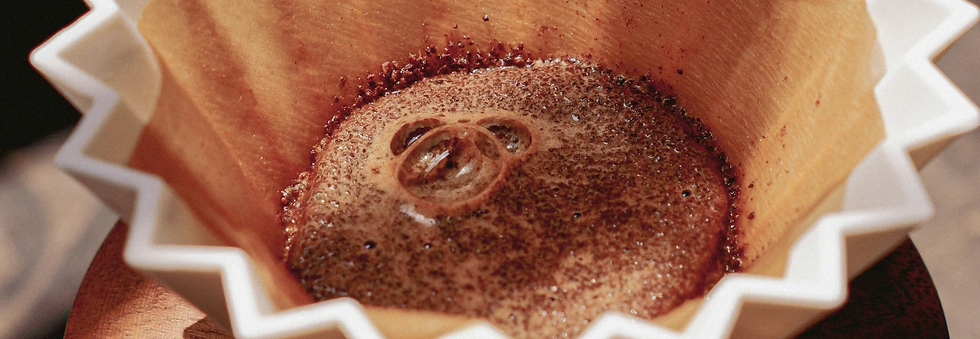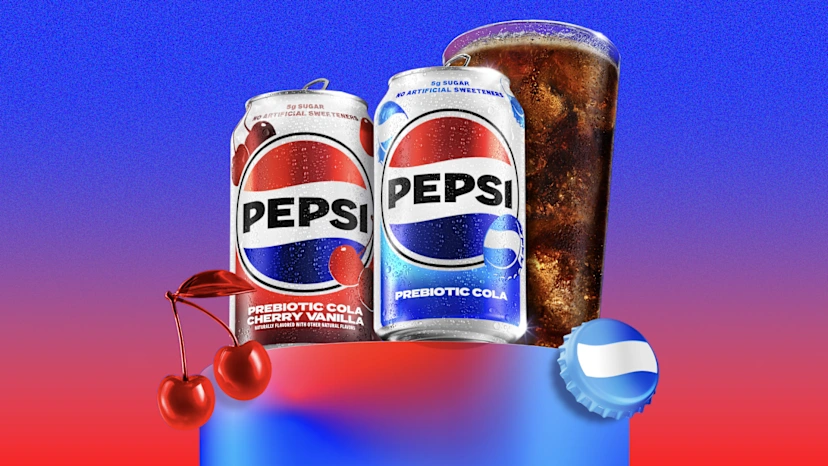Beverages: Why Black Coffee Should Brew as Gen Z’s Go-To Drink: Stress, Self-Care, and Coffee Culture Clash
- InsightTrendsWorld

- Jul 31, 2025
- 6 min read
Why It Is Trending: Brewing Stress & Self-Care Amidst Sweet Coffee Craze
Gen Z’s Anxiety Epidemic: Up to half of Gen Z report functional impairment due to high stress from social, financial, and political pressures.
Rise of “Little Treat” Culture: Young consumers indulge in colourful, customised, sugar-laden drinks as affordable comfort and self-expression.
Discrepancy Between Health and Choice: Despite black coffee’s proven health benefits, Gen Z prefers highly personalised beverages, sparking debates on long-term wellness.
Changing Coffee Consumer Dynamics: The clash between traditional coffee purity and contemporary flavour experimentation reflects broader generational divides.
Market Opportunity for Healthier Habits: Insights into making black coffee appealing again could shift consumption patterns in a stress-ridden generation seeking genuine self-care.
Overview: "From Ritual to Replay — Gen Z’s Coffee Conundrum"
Gen Z, born roughly from the late 1990s to early 2010s, is navigating unprecedented global challenges, marked by economic uncertainty and intense social media influence, impacting their mental health and lifestyle choices. Coffee acts as both a form of self-care and creative expression, but the flavours they gravitate towards are less about the coffee itself and more about the experience — sweet, customised, and visually engaging drinks dominate. Black coffee remains underappreciated within this demographic, despite its long-documented health benefits including antioxidants and mood regulation. The entrenched appeal of sugary beverages challenges brands to rethink how to position black coffee in the context of Gen Z’s wellness needs and cultural preferences.
Detailed Findings: "Sip by Sip — The Lines Dividing Coffee Choices"
Stress and Anxiety Prevalence: Gen Z faces immense pressures exacerbated by pandemic fallout, cost-of-living crises, and social media-induced anxieties.
Sweetened Drinks for Instant Comfort: Customised drinks offer nostalgia, mood boosts, and escapism, often loaded with sugar, causing concerns over long-term mental health.
Declining Black Coffee Consumption: US survey data shows a 56% drop in black coffee preference within just two years, replaced by flavourful, embellished choices.
Functional Coffee Innovations: Gen Z embraces coffees with added wellness ingredients, aligning with broader health interests but still favouring flavour complexity.
Economic and Convenience Factors: Black coffee is cost-effective and quick to make at home; however, convenience trends and influencer culture tilt preferences toward RTD and café drinks.
Celebrity and Influencer Influence: High-profile endorsements drive customised coffee trends, overshadowing black coffee’s health advocacy.
Potential Healthcare Benefits Overlooked: Antioxidants in black coffee may reduce disease risks and improve longevity, yet this message struggles to reach younger drinkers.
Branding and Social Messaging Gap: Black coffee lacks contemporary “cool” status necessary to engage Gen Z’s identity and aesthetic priorities.
Key Success Factors of Product Trend: "Pouring Health, Coolness, and Convenience"
Strong Influencer Endorsements: Collaborations with trendsetters to “make black coffee cool” again.
Multi-Use Product Formats: Portable concentrates and RTD black coffee products increase accessibility and convenience.
Affordable Quality at Home: Emphasizing cost savings compared to pricier customised café drinks.
Clear Health Communications: Highlighting benefits like antioxidants, gut health, and mental wellness in relatable language.
Cultural Repositioning: Crafting narratives that align black coffee with creativity, self-expression, and contemporary lifestyles.
Key Takeaway: The Black Coffee Revival Needs Branding, Not Just Benefits
Black coffee offers clear health advantages and cost benefits for stressed Gen Z consumers. However, longevity will depend on reframing the drink as culturally relevant, stylish, and versatile—leveraging influencer marketing and convenient formats to overcome current perceptions of black coffee as “boring.” Sweet, personalised coffee dominates for now because it matches Gen Z’s immediate psychological and social needs, but the door remains open for a black coffee renaissance grounded in holistic wellness and savvy branding.
Main Trend: "Generation Z’s Coffee Identity — From Expression to Wellness"
Gen Z’s coffee consumption is defined by their demand for personalised, sweet, and interactive experiences that align with their self-care rituals and social media expression. Concurrently, there is a latent interest in functional, health-supportive beverages, indicating a tension between indulgence and wellness that shapes their evolving coffee choices.
Description of the Trend: "The Customisation-Health Tension in Gen Z Coffee Culture"
This trend reflects Gen Z’s dual desires to express individuality through highly customised coffee drinks while also seeking wellness through functional ingredients. Black coffee, symbolising purity and health, currently struggles against the dominant narrative of coffee as an aesthetic, social, and indulgent moment.
Key Characteristics of the Core Trend: "Spoons of Sugar vs. Sips of Simplicity"
High Customisation and Creativity: Flavours, syrups, and toppings as forms of self-expression and comfort.
Wellness Meets Indulgence: Integration of functional ingredients into sweet drinks blurs lines between health and pleasure.
Influencer-Driven Consumption: Social media celebrities dictate coffee drink trends and perceptions.
Convenience-Focused Formats: RTD and café-sourced coffees cater to busy, experience-seeking consumers.
Economic and Lifestyle Pressures: Financial constraints and mental health concerns influence purchase habits.
Health Awareness Growing but Not Leading: Appreciation for black coffee benefits exists but lacks critical mass behind behavioural change.
Market and Cultural Signals Supporting the Trend: "Stirring the Pot for Coffee’s Next Chapter"
Widespread Gen Z Anxiety and Stress Data: Chronic stress shapes consumption motivations.
Growth of “Little Treat” Culture: Affordable, self-indulgent purchases rise during economic uncertainty.
Declining Black Coffee Preference: Marked shift towards sweeter, visually appealing drinks shown in surveys.
Functional Coffee Innovation Surge: New product launches blend health benefits with flavour creativity.
Influencer Marketing Dominance: Celebrity endorsements drive product and consumption trends.
Policy Moves Recognising Coffee Health Benefits: FDA health claim for black coffee adds legitimacy.
Price Sensitivity Highlighting Home Brewing: Cost considerations may promote black coffee adoption.
What Is Consumer Motivation: "Why Gen Z Drinks the Way They Do"
Stress Relief and Self-Care: Coffee as an affordable comfort and mood lifter.
Creative Self-Expression: Customised drinks act as identity markers and shareable social media content.
Function Meets Pleasure: Desire for products that provide both enjoyment and wellness benefits.
Convenience and Accessibility: Quick, ready-to-drink options suited to fast-paced lifestyles.
Economic Practicality: Value-seeking encourages choice of affordable or premium perceived value products.
What Is Motivation Beyond The Trend: "Deeper Drives Influencing Gen Z’s Coffee Habits"
Seeking Stability in Chaotic Times: Rituals offering control and normalcy.
Community and Social Connection: Coffee experiences fuel peer bonding and belonging.
Authenticity and Transparency: Preference for brands aligned with wellbeing and ethical values.
Health Consciousness Growth: Increasing awareness of long-term effects influences gradual shifts.
Digital Integration: Adoption of apps and influencers' voices shape trends and behaviour.
Descriptions of Consumers: "Profiling Today’s Coffee-Drinking Gen Z"
Consumer Summary:
Aged roughly 18–28, encompassing late teens through twenties.
Gender-diverse, urban, digitally connected.
Income levels moderate, often price sensitive but willing to pay for perceived value.
Lifestyle marked by high stress, social media engagement, and wellness interest.
Values self-expression, creativity, and convenience in consumption.
Seeks comfort and indulgence but increasingly aware of health impacts.
Influenced heavily by peers, celebrities, and social media content.
Views coffee as both a personal treat and a social ritual.
How the Trend Is Changing Consumer Behavior: "Customising Comfort Over Coffee Purity"
Shift from ritual black coffee to beverage as creative canvas.
Increased experimentation with flavours, formats, and functional add-ons.
Rising appetite for convenience and instant gratification.
Growing health awareness may spark interest in simpler, purer options.
Brand loyalty becoming fluid, driven by social validation and innovation.
Implications of Trend Across the Ecosystem: "Pouring Impact Across Coffee’s Value Chain"
For Consumers: More diverse choices balancing indulgence and wellness, but potential health trade-offs from sugary drinks.
For Brands and CPGs: Need to innovate with both indulgent, customisable products and healthful black coffee options while managing authenticity.
For Retailers: Opportunities in RTD beverages, home brewing solutions, and educational campaigns to shift perceptions.
Strategic Forecast: "Brewing Black Coffee’s Comeback Strategy"
Leverage influencer partnerships to reposition black coffee culturally.
Develop convenient, multi-use black coffee products (e.g., concentrates, RTD).
Emphasize educational marketing on health and wellness benefits.
Align pricing strategies to highlight cost savings vs. sweetened alternatives.
Integrate black coffee into wellness trends and functional beverage categories.
Areas of Innovation: "Spilling the Beans on Next-Level Black Coffee"
Innovative Packaging: Portable, stylish black coffee formats targeting Gen Z.
Functional Infusions: Incorporating subtle adaptogens and nootropics without added sugar.
Social Media Campaigns: Inspirational storytelling featuring relatable Gen Z influencers.
Multi-Format Applications: Products suitable for cold brew, espresso, and instant convenience.
Sustainability Messaging: Connecting black coffee with eco-conscious behaviors and ethical sourcing.
Summary of Trends:
Core Consumer Trend: “Expressive Self-Care” — Gen Z seeking personalisation and comfort amidst stress.
Core Social Trend: “Digital & Influencer Culture” — shaping beverage preferences and brand narratives.
Core Strategy: “Health Meets Aesthetic” — merging wellness benefits with creative, Instagrammable products.
Core Industry Trend: “Customisation Dominance vs. Simplicity Revival” — tension between embellished drinks and pure coffee.
Core Consumer Motivation: “Stress Relief Through Indulgence” — balancing immediate pleasure with long term wellness.
Final Thought: "Making Black Coffee Cool Again — The Gen Z Challenge"
Black coffee holds undisputed health and wellness benefits critical for a generation battling widespread anxiety and stress. Yet, to win over Gen Z consumers, the coffee industry must transcend traditional messaging and reimagine black coffee as a symbol of creativity, convenience, and modern wellness. By aligning with influencer culture, offering innovative products, and communicating authenticity, black coffee has the potential to become not just a healthier alternative but a cultural staple for the wellness-focused generation of tomorrow.





Comments